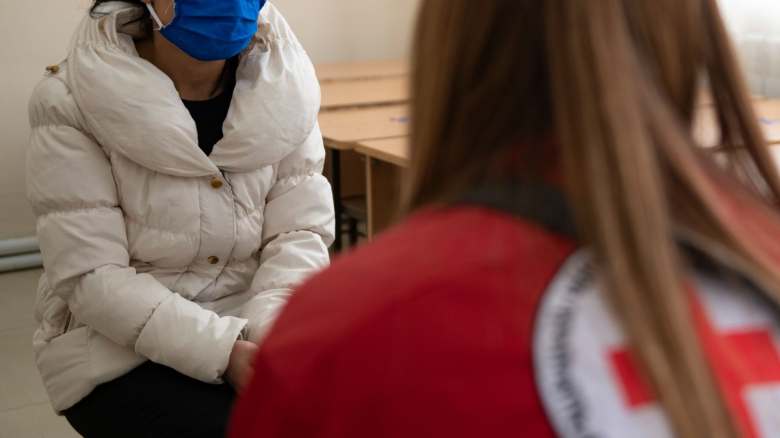
Physical wounds are easy to see, but the psychological wounds of conflict are less obvious. Armenian Red Cross Society, through its auxiliary role to government, is addressing the psychological needs of people affected by the recent Nagorno-Karabakh conflict escalation.
Arevik Avagyants has been a Psychologist with Armenian Red Cross Society for more than two years. For the past few months, she has been visiting injured soldiers in the hospital and their loved ones.
“From the very beginning, it was not just about soldiers but also about family
members and close relatives. We were providing Psychological First Aid, psychosocial-support and other forms of psychological support in hospitals,” explains Arevik.
From the first visit to the last, all discussions with Armenian Red Cross Society psychologists are strictly confidential. The work of the psychologists is also preventative and aims to minimise the long-term psychological impact of the traumatic events many have experienced as a result of the Nagorno-Karabakh conflict.
“We are helping them to overcome acute stress reactions. Because in the first few months after experiencing something traumatic, this is the period when the provided psychological support is very crucial. Because of this support, people are less likely to develop Post-Traumatic Stress Disorder (PTSD),” says Arevik.
“We work with special tools to help them process traumatic information, to be here, to be grounded. We also help with some techniques around relaxation, breathing exercises, grounding – techniques that they can take forward and use for themselves.”
The Armenian Red Cross Society has provided around 1,000 psychological services to wounded soldiers and their close relatives in the past three months, but its psychosocial support activities extend far beyond this particular work.
With the spread of COVID-19 in the Republic of Armenia, Armenian Red Cross Society has managed psychosocial support hotlines for people requiring information, access to financial or material support, or psycho-emotional support. More than 15,000 people have been assisted through these hotlines.
Addressing a person’s psychological needs is a vital part of recovery from a traumatic event. And for Arevik, it is a humanitarian imperative.
“As psychologists, as a psychosocial support team, we are here to help – to respond to the psychological needs”, she says.
Jessica Timings
Communications Coordinator
IFRC, Armenia